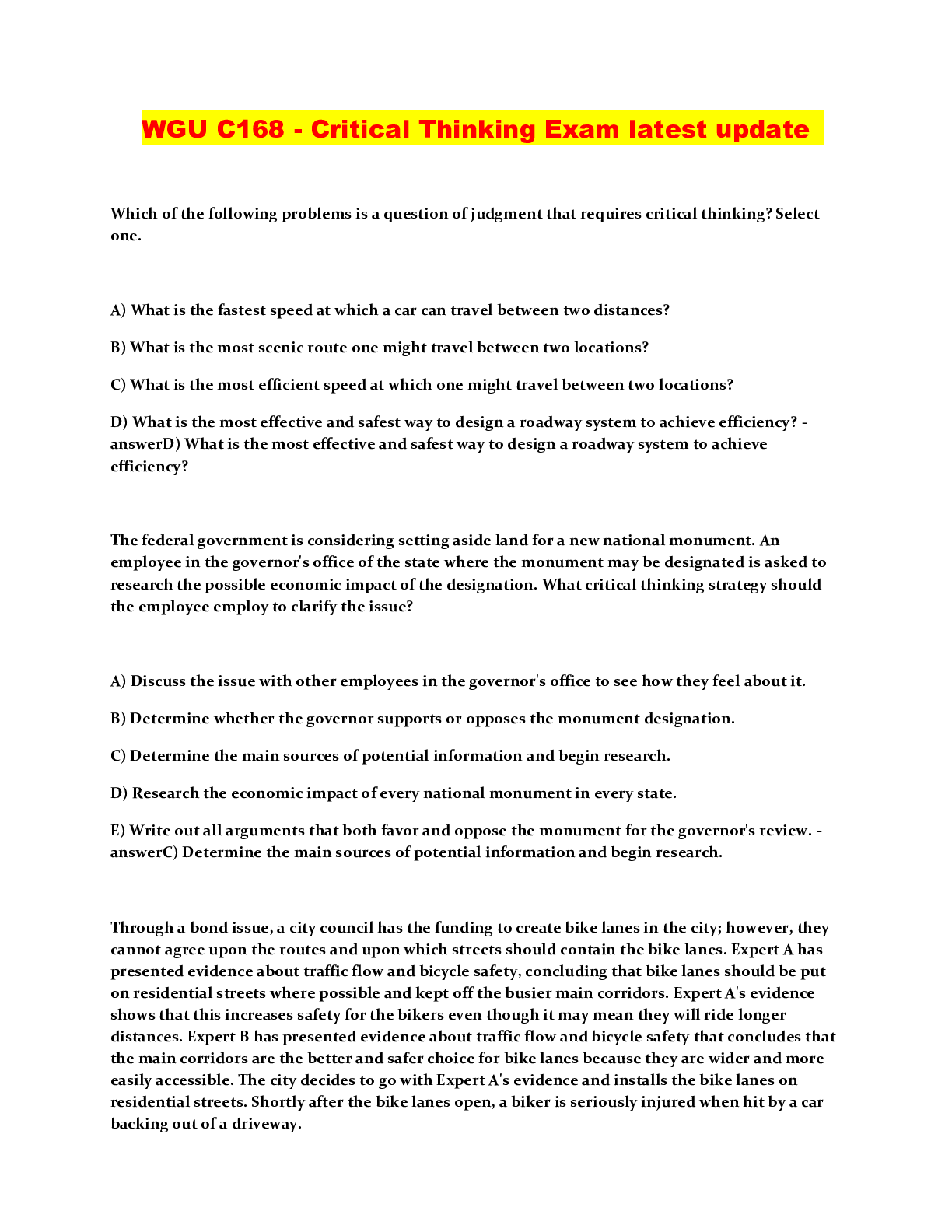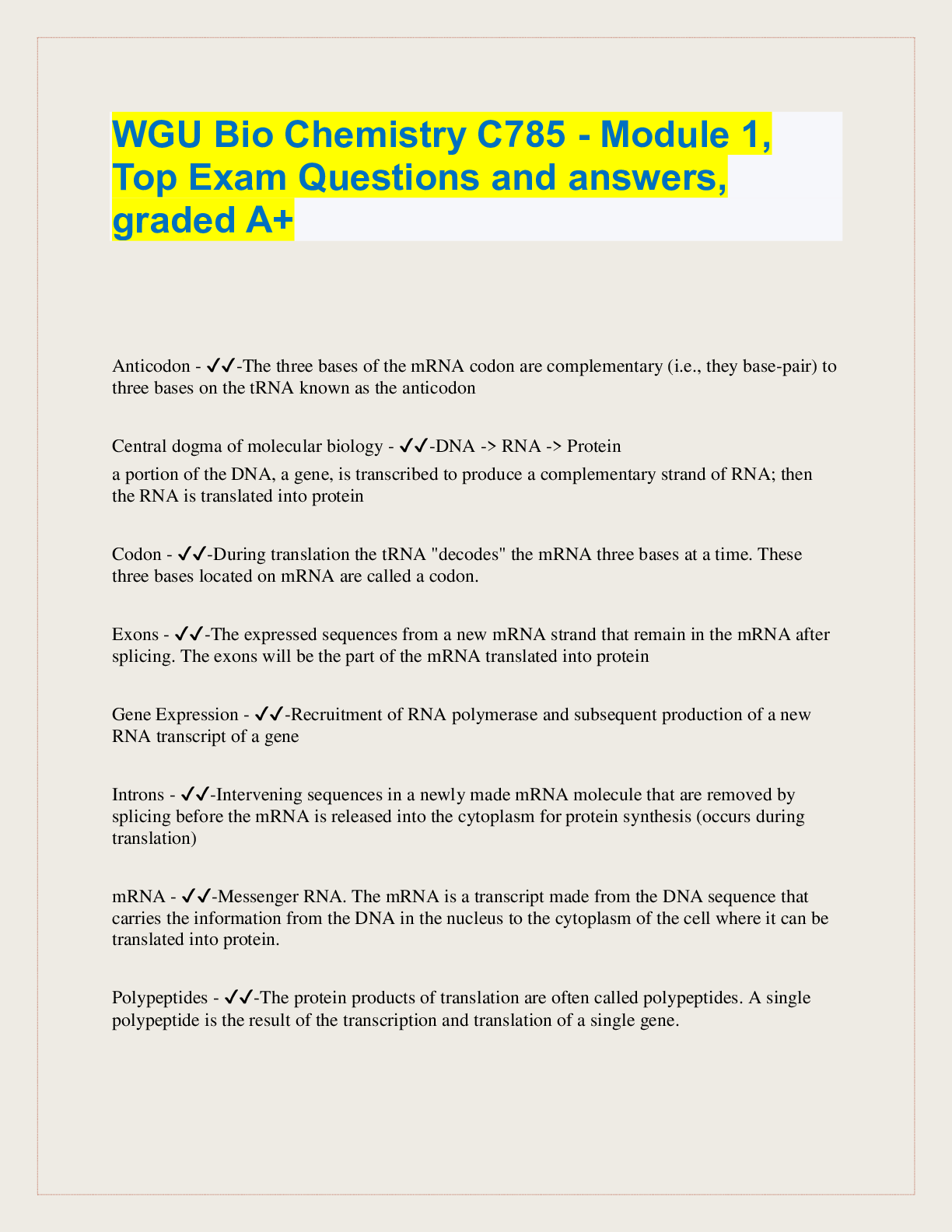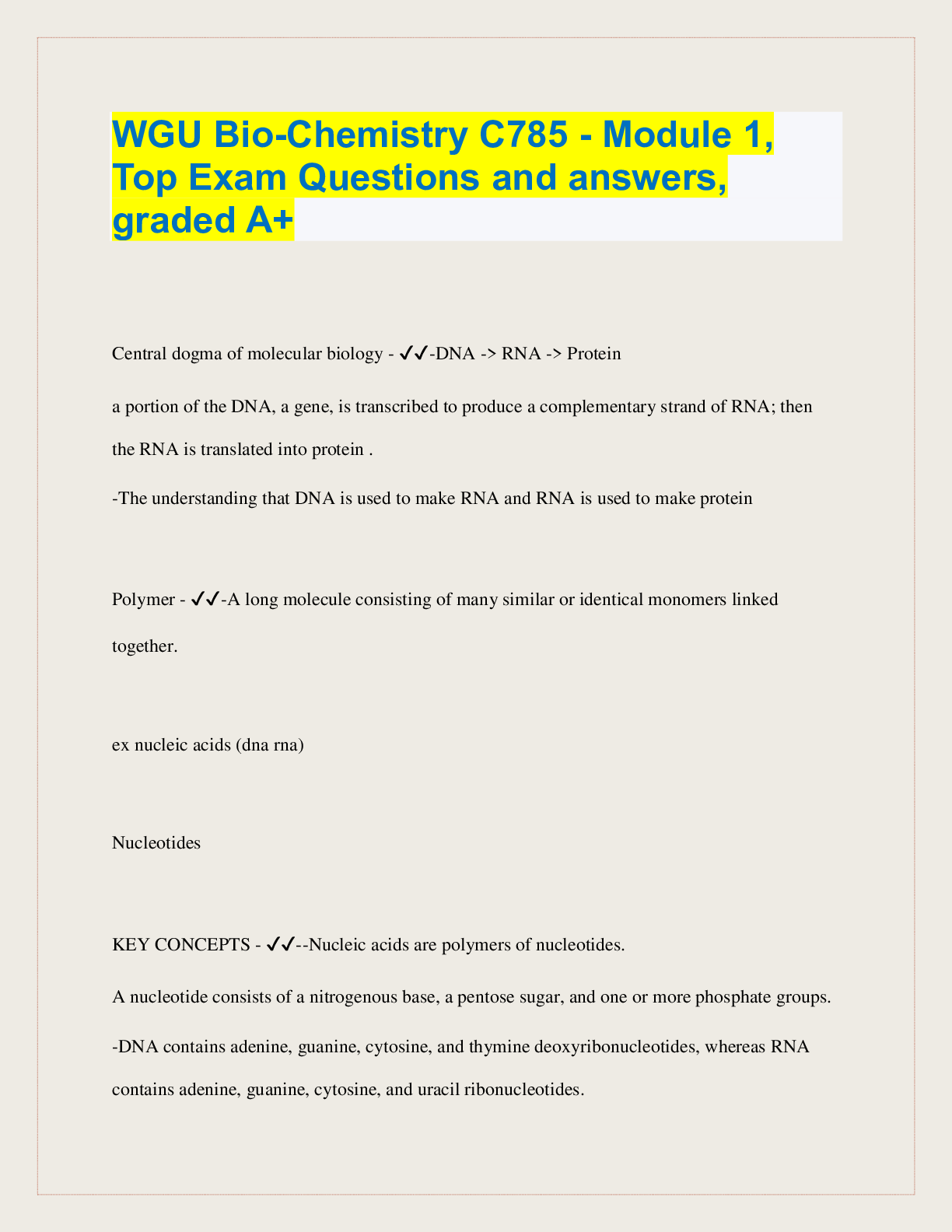Education > QUESTIONS & ANSWERS > 09 - WGU - C168 - Critical Thinking - Module 1, 2,3,4,5,6,7,8 Already Passed (All)
09 - WGU - C168 - Critical Thinking - Module 1, 2,3,4,5,6,7,8 Already Passed
Document Content and Description Below
09 - WGU - C168 - Critical Thinking - Module 1, 2,3,4,5,6,7,8 Already Passed Critical thinking comprises three interlinking dimensions Correct Answer- Analyzing, evaluating, and improving Critical... thinking is characteristically Correct Answer- self-directed, self-disciplined, self-monitored, self-corrective Stereotype Correct Answer- A fixed or a oversimplified conception of a person, group, or idea Egocentrism Correct Answer- the tendency to view everything in relationship to oneself Sociocentrism Correct Answer- assumption that one's own social group is inherently superior to all others First-order thinking (ordinary thinking) Correct Answer- Spontaneous and non-reflective, contains insight, prejudice, good and bad reasoning Second-order thinking (critical thinking) Correct Answer- First-order thinking that is consciously realized (i.e., analyzed, assessed, and reconstructed) Weak sense critical thinkers Correct Answer- Ignore the flaws in their own thinking, Often seek to win an argument through intellectual trickery or deceit. Strong sense critical thinkers Correct Answer- Consistent pursuit of what is intellectually fair and just, strive to be ethicalFair mindedness Correct Answer- The commitment to consider al relevant opinions equally without regards to one's own sentiments or selfish interests. Intellectual unfairness Correct Answer- Feel no responsibility to represent viewpoints with which they disagree fairly and accurately Intelectual humility Correct Answer- Commitment to discovering the extent of one's own ignorance on any issue Intellectual arrogance Correct Answer- Overestimation of how much one knows Intellectual Courage Correct Answer- Confronting ideas, viewpoints, or beliefs with fairness, even when doing so is painful Intellectual cowardice Correct Answer- Fear of ideas that do not conform to one's own Intellectual Empathy Correct Answer- Inhabiting the perspectives of others in order to genuinely understand them Intellectual self-centeredness Correct Answer- Thinking centered on self Intellectual Integrity Correct Answer- Holding oneself to the same rigorous intellectual standards that one expects others to meet Intellectual dishonesty Correct Answer- Marked by contradictions and inconsistencies of which the perpetrator is unconsciousIntellectual Perseverance Correct Answer- Working one's way through intellectual complexities despite frustrations inherent in doing so, Not giving up when confronted by complicated problems that don't lend themselves to easy solutions Intellectual laziness Correct Answer- Giving up quickly when confronted with a tough intellectual challenge Confidence in Reason Correct Answer- Proceeds from the belief that both the individual's and society's higher interests are best served by unfettered reason Intellectual distrust of reason Correct Answer- Lack of confidence in reason, Inclines us to assert the truth of our own beliefs, flawed though they might be Intellectual Autonomy Correct Answer- Thinking for oneself while adhering to standards of rationality Intellectual conformity Correct Answer- Intellectual dependence, Society rewards conformity of thought, which perpetuates the status quo (political, economic, or intellectual), while providing scant incentive for true intellectual autonomy Tactics for the beginning critical thinker Correct Answer- Use "wasted" time, Handle one problem per day, Internalize intellectual standards, Keep an intellectual journal, Practice intellectual strategies, Reshape your character, Deal with your ego, Redefine the way you see things, Get in touch with your emotions, Analyze group influences on your life.Three Functions of the Mind Correct Answer- Thinking, Feeling, and Wanting Elements of reasoning are also called Correct Answer- the parts of thinking or fundamental structures of thought Universal elements are Correct Answer- Purposes, Questions, Assumptions, Implications, Information, Concepts, Inferences, Points of View Purposes Correct Answer- The goal or objective of reasoning Questions Correct Answer- What directs reasoning. All reasoning involves answering at least one question Assumptions Correct Answer- Beliefs that are taken for granted(taken to be true) in reasoning Implications and consequences Correct Answer- What follows from reasoning. Reasoning delivers us to a position or viewpoint about something. [Show More]
Last updated: 1 year ago
Preview 1 out of 4 pages

Reviews( 0 )
Document information
Connected school, study & course
About the document
Uploaded On
Sep 20, 2022
Number of pages
4
Written in
Additional information
This document has been written for:
Uploaded
Sep 20, 2022
Downloads
0
Views
88

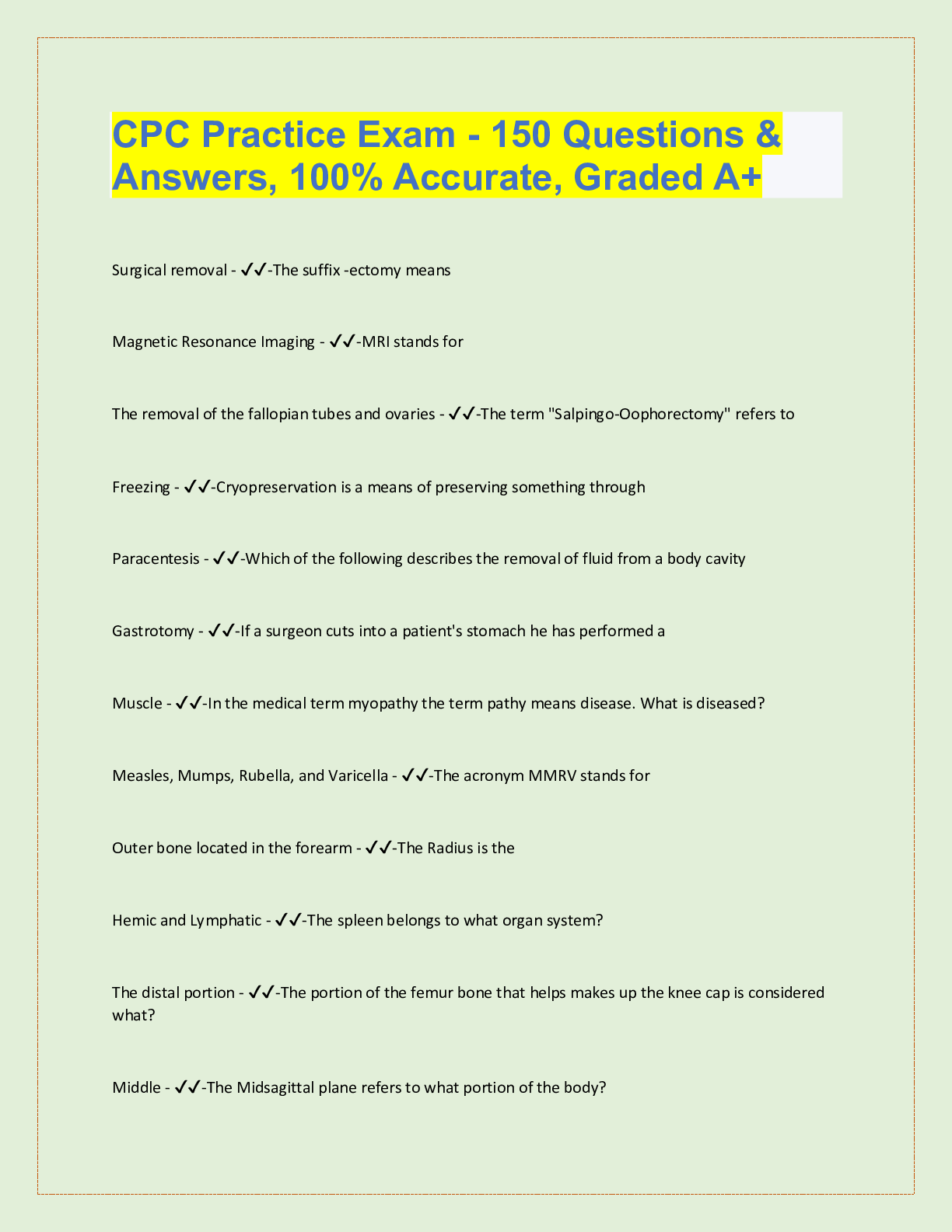

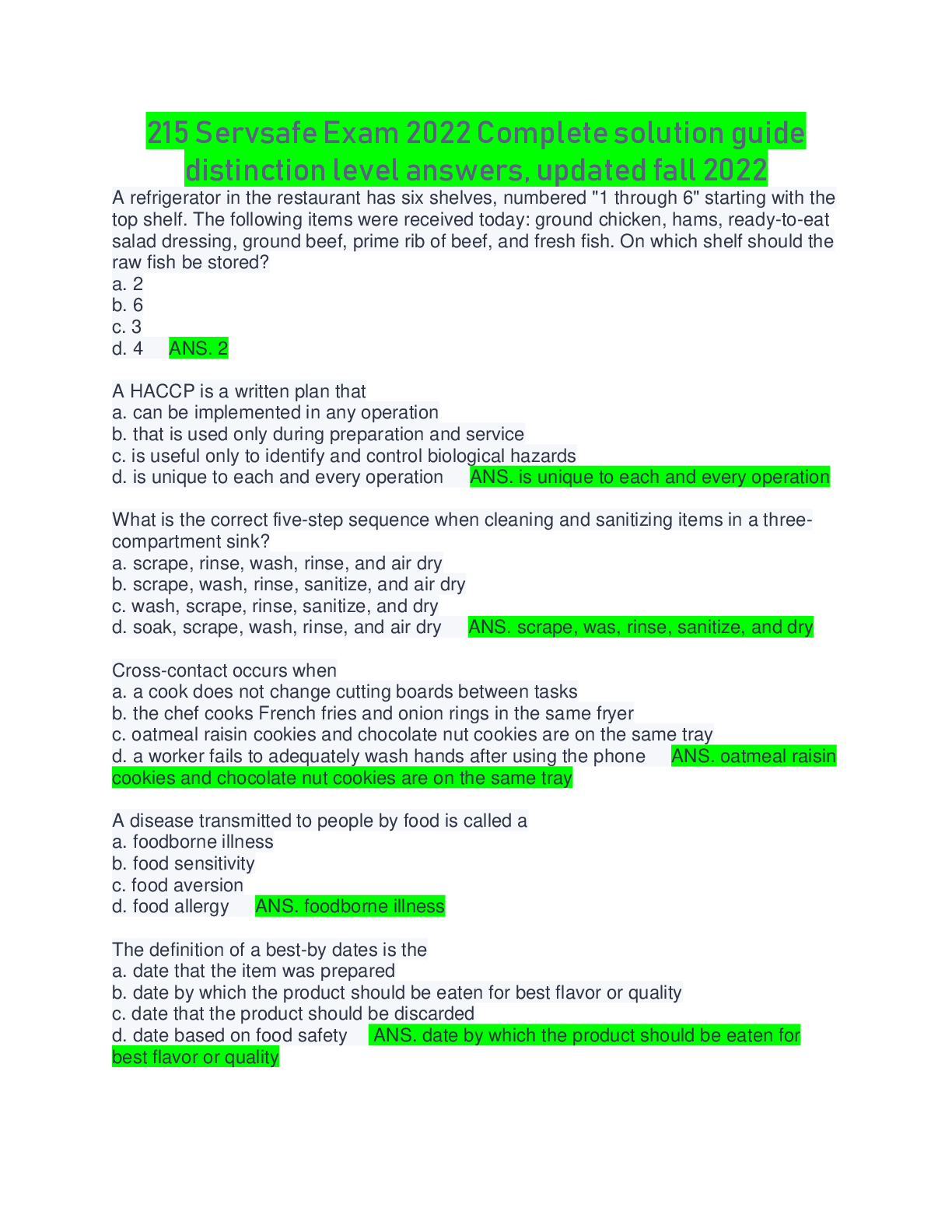
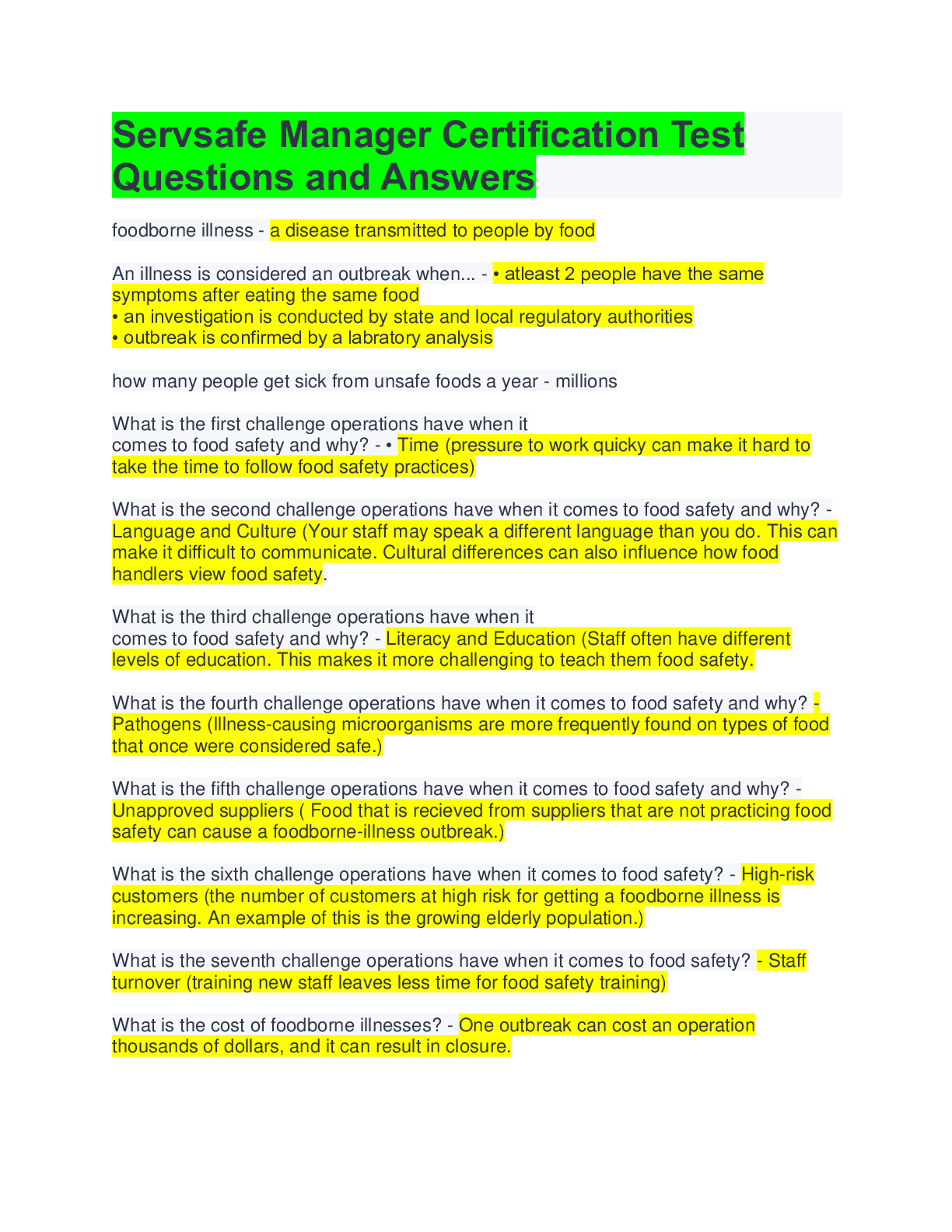
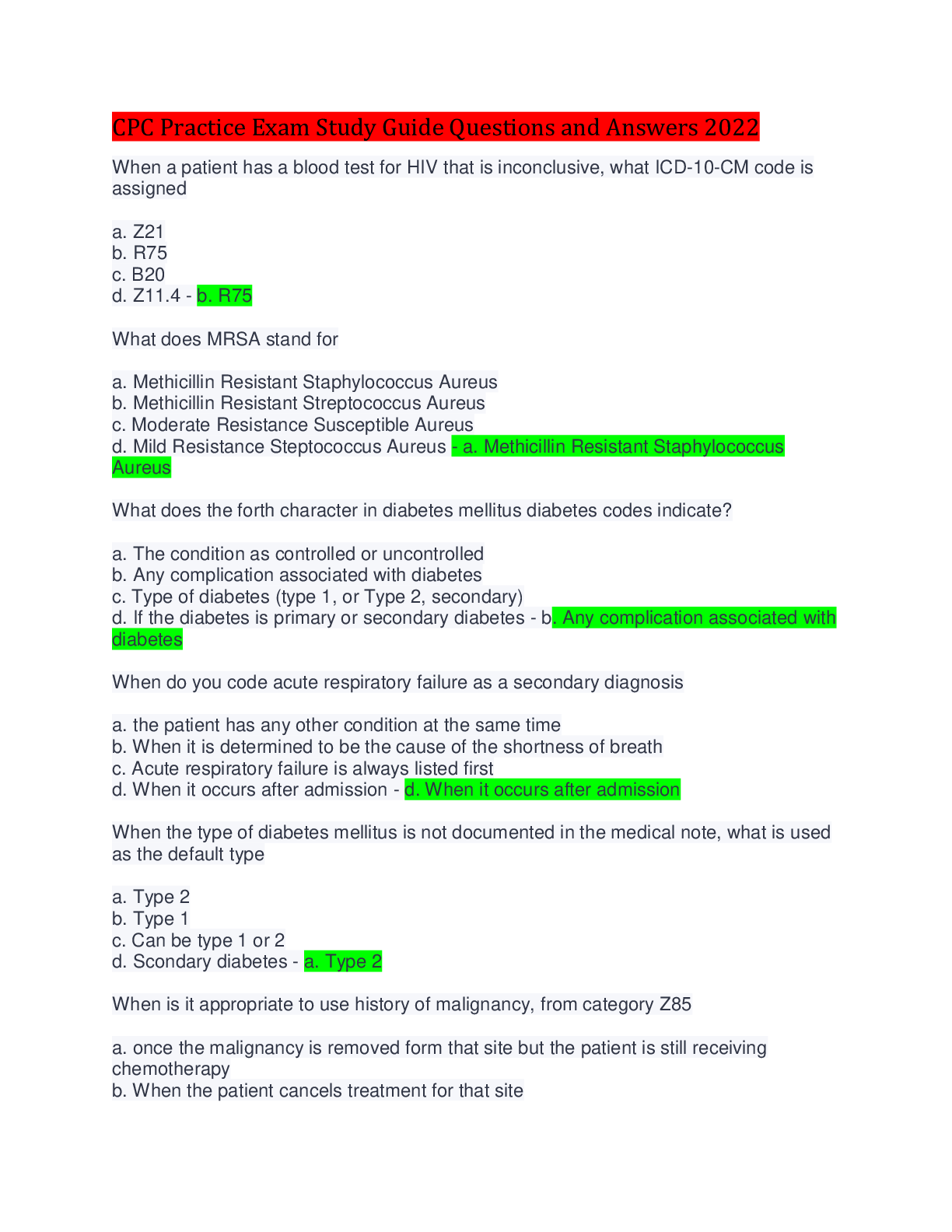
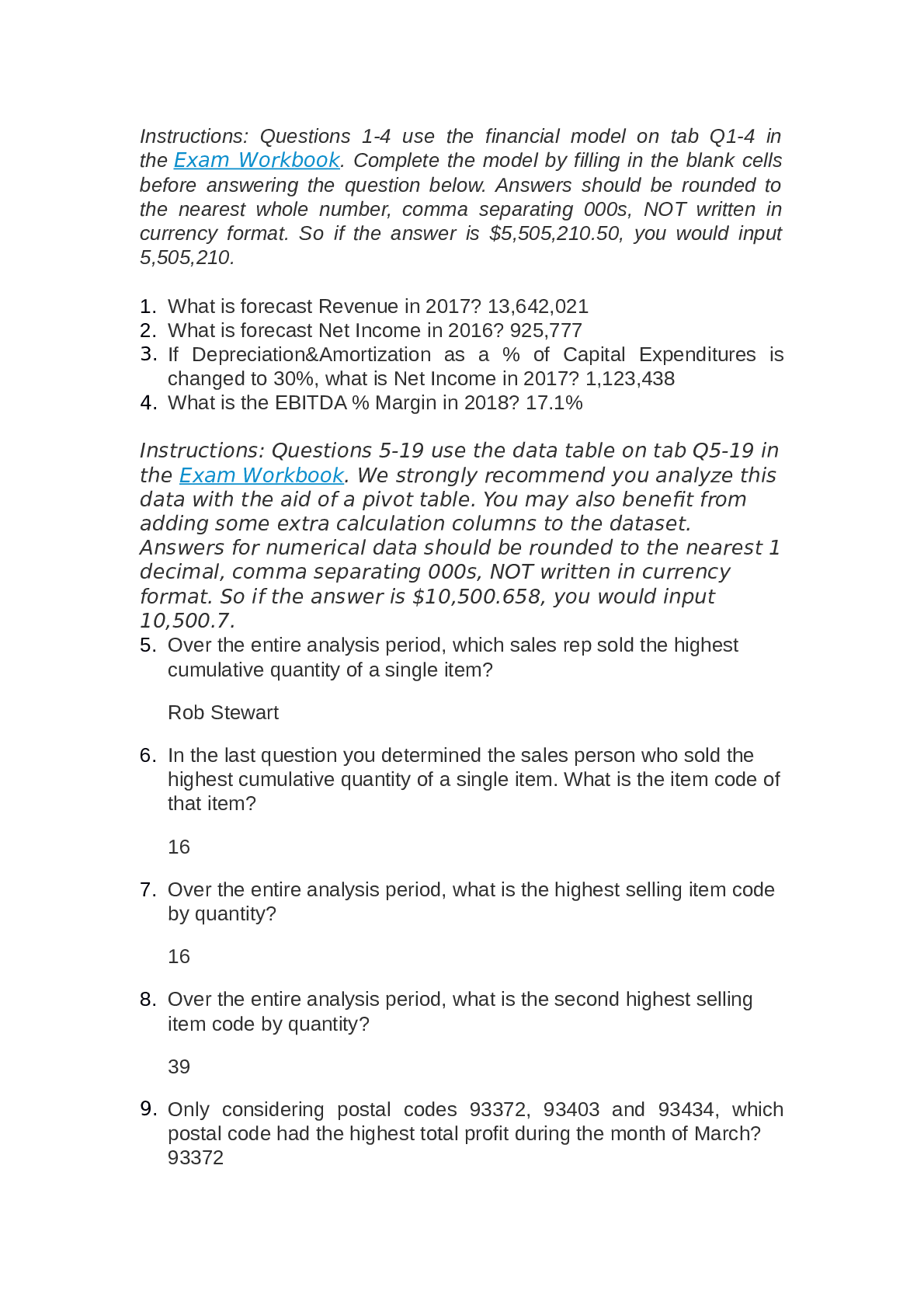
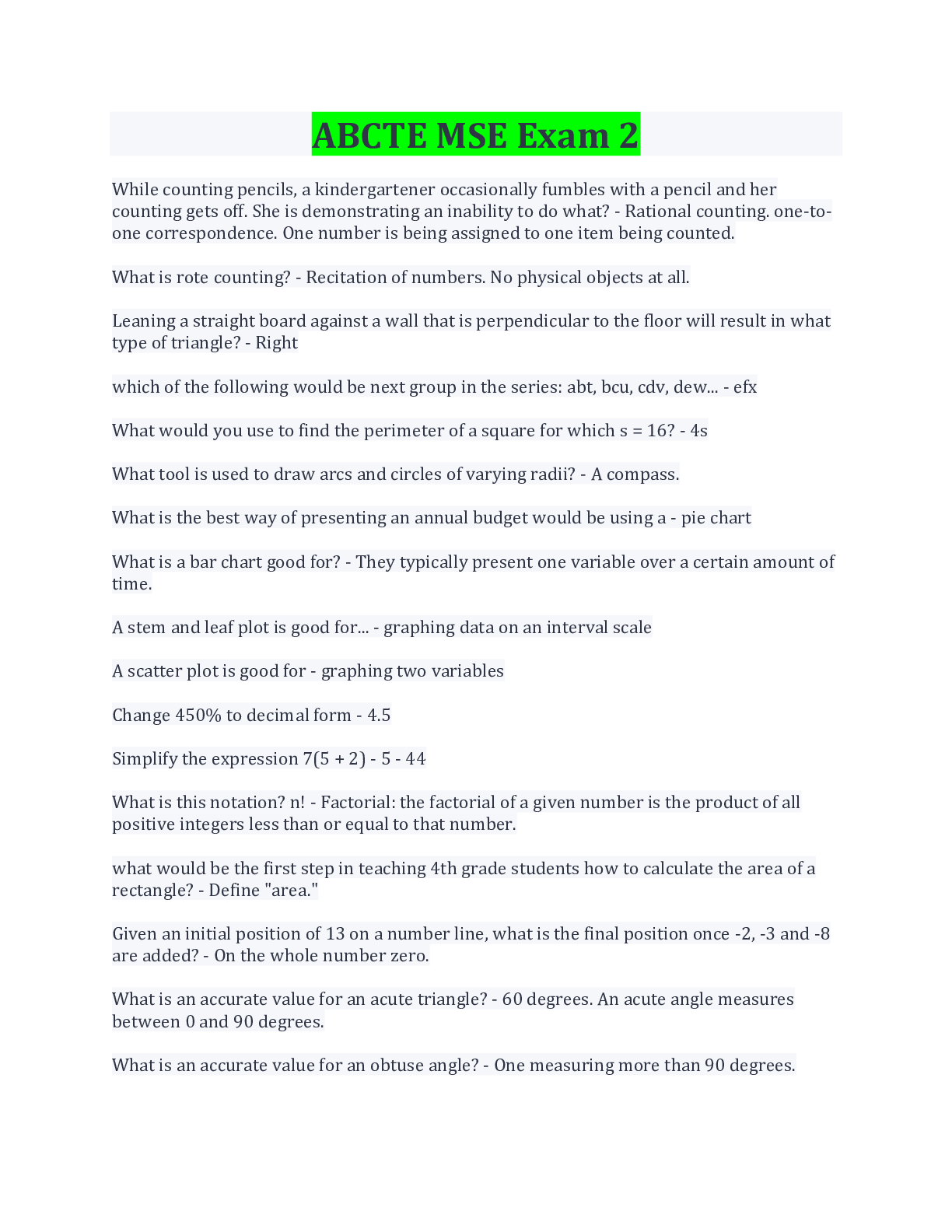
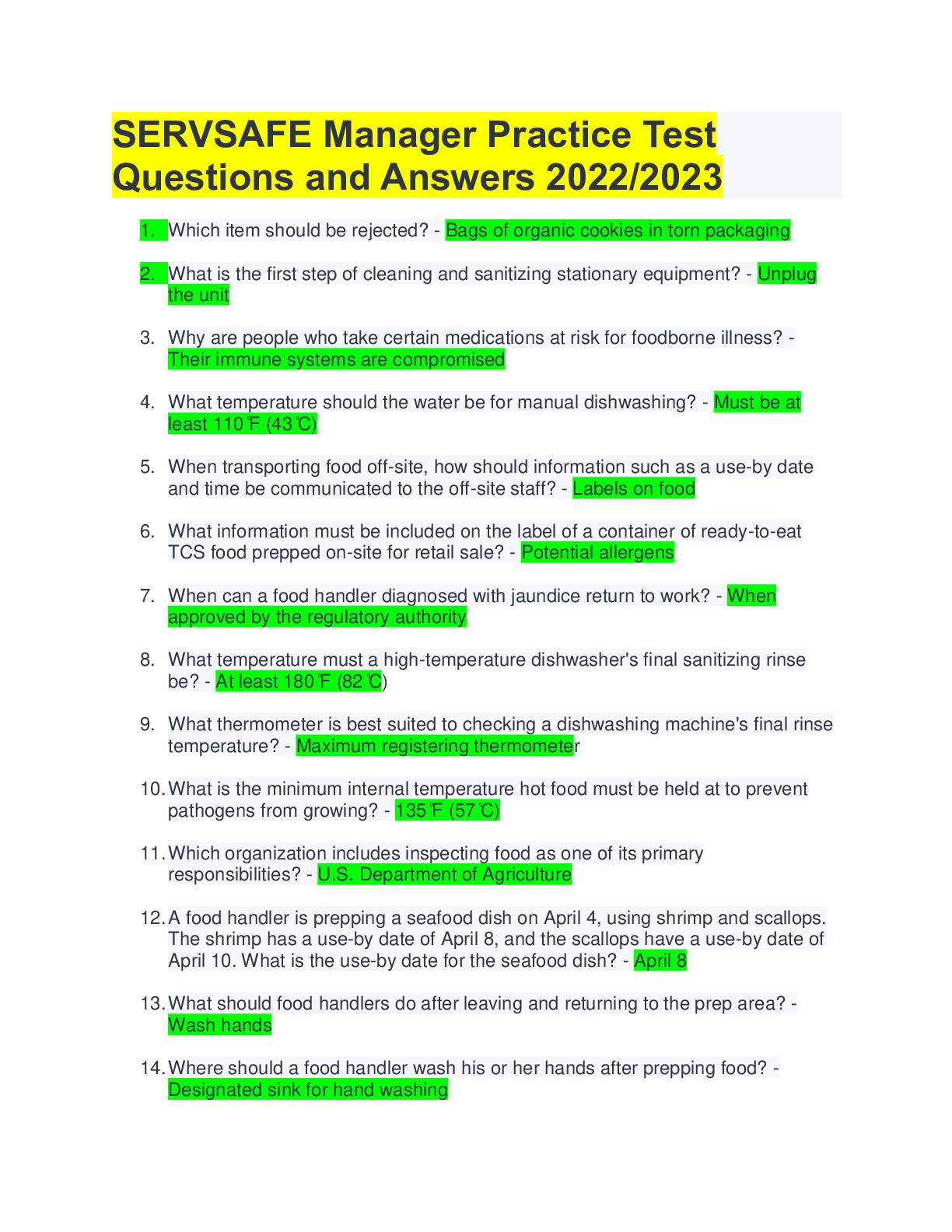

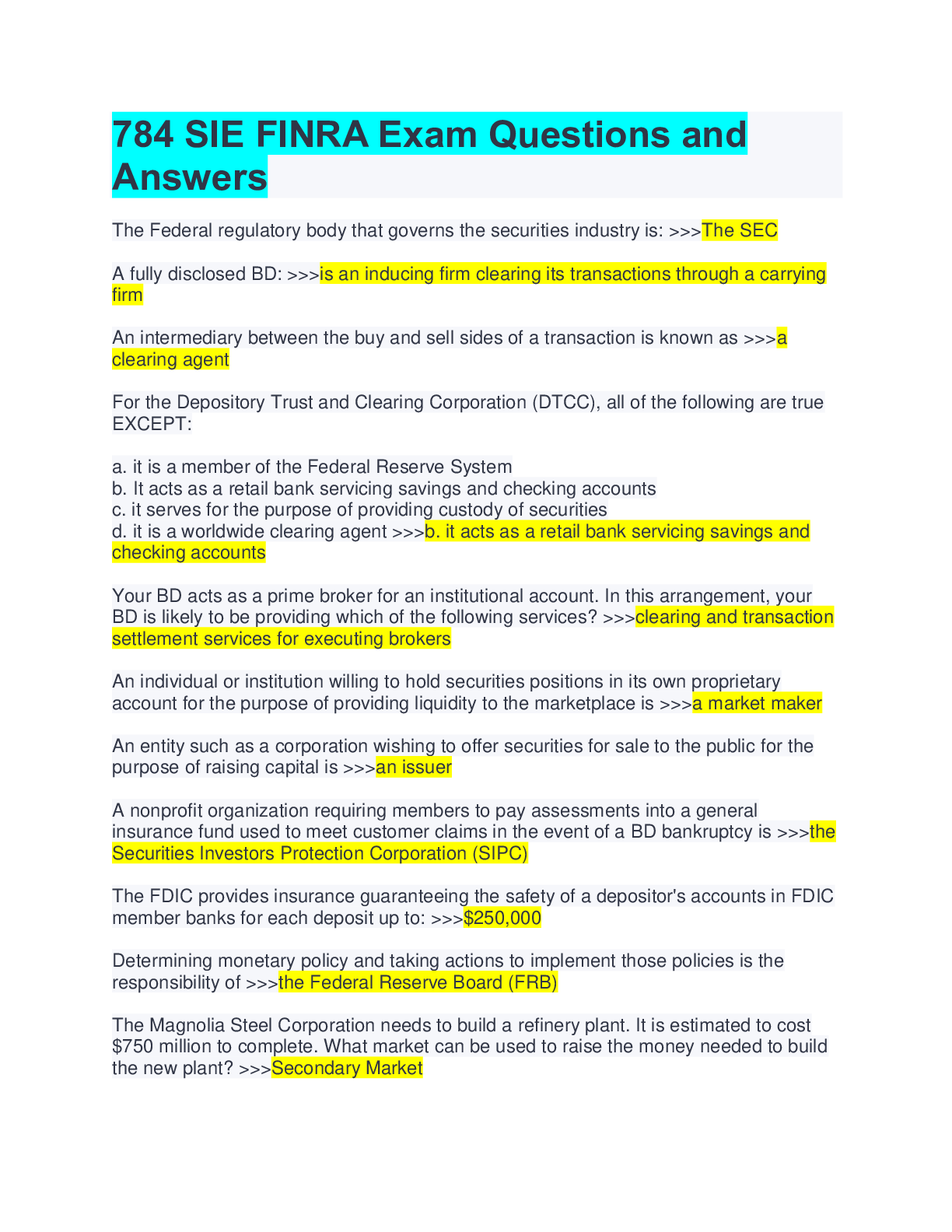
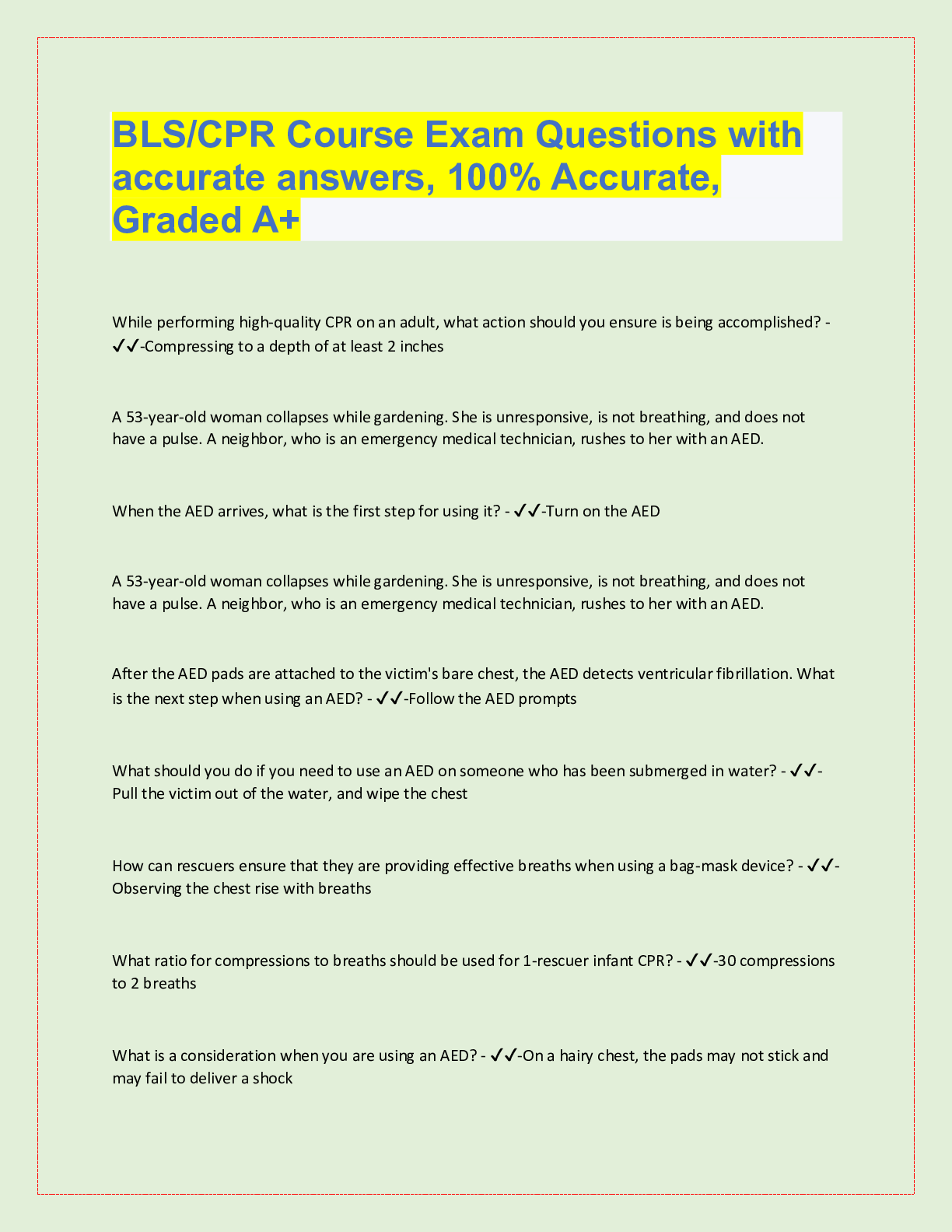
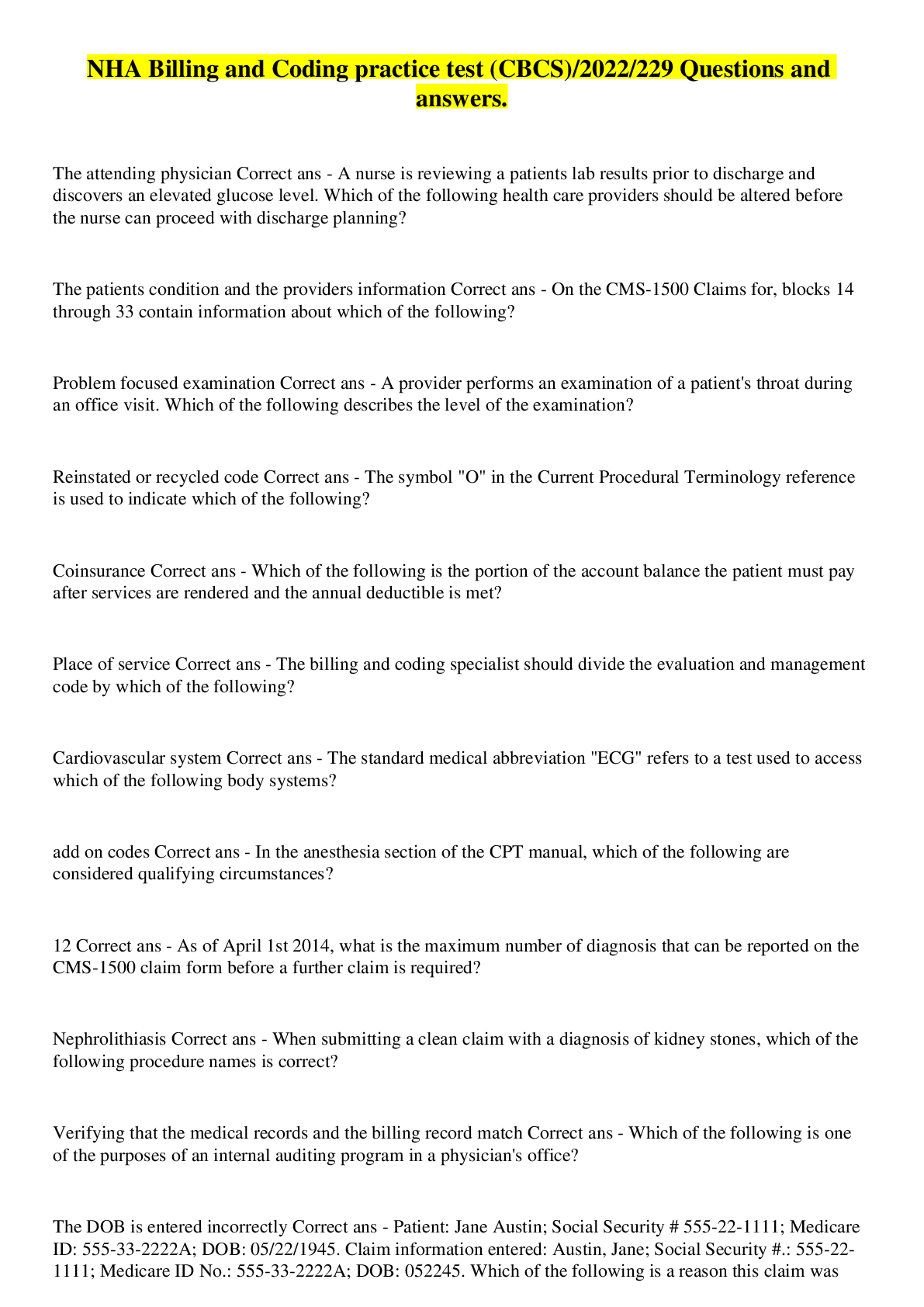
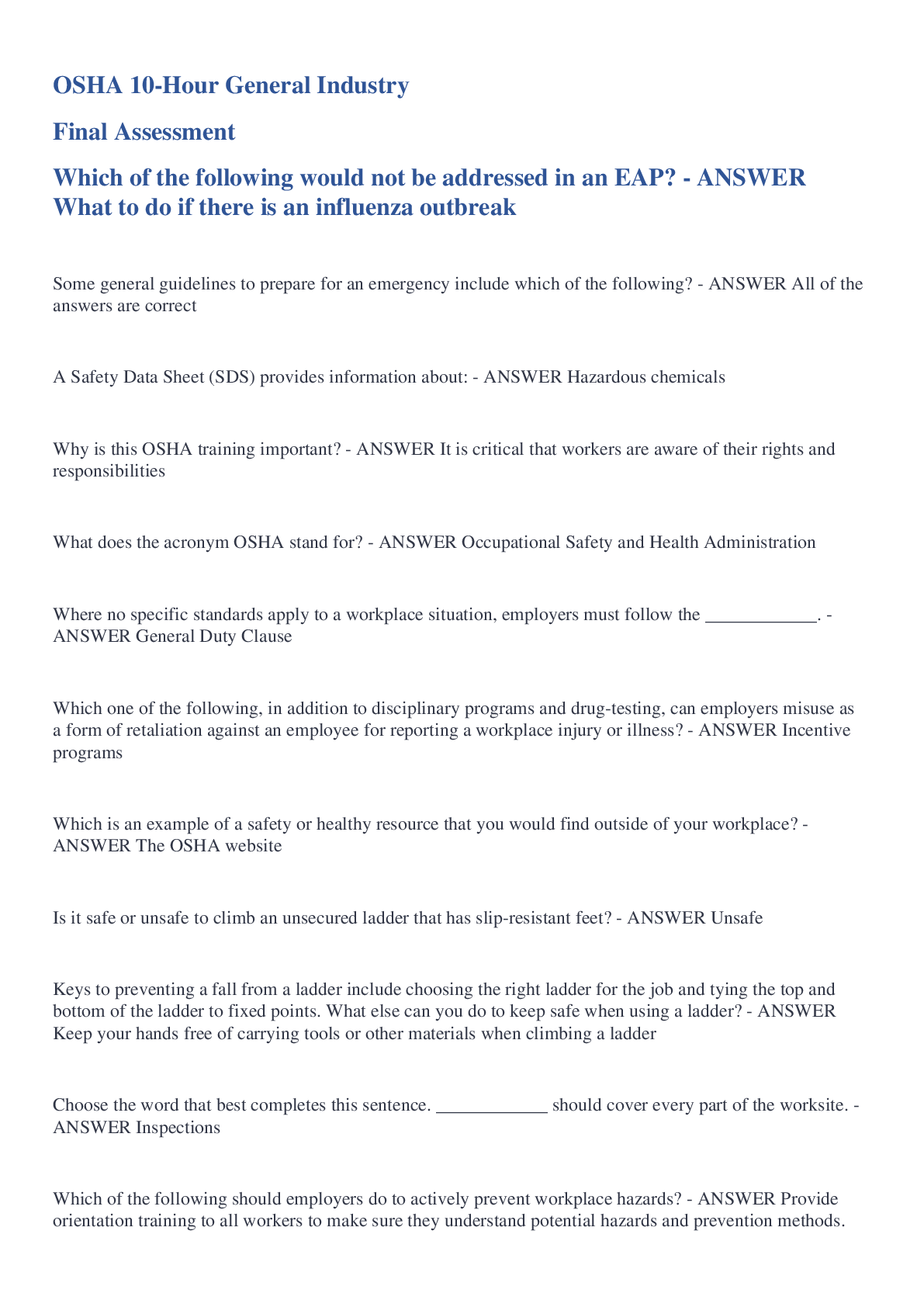

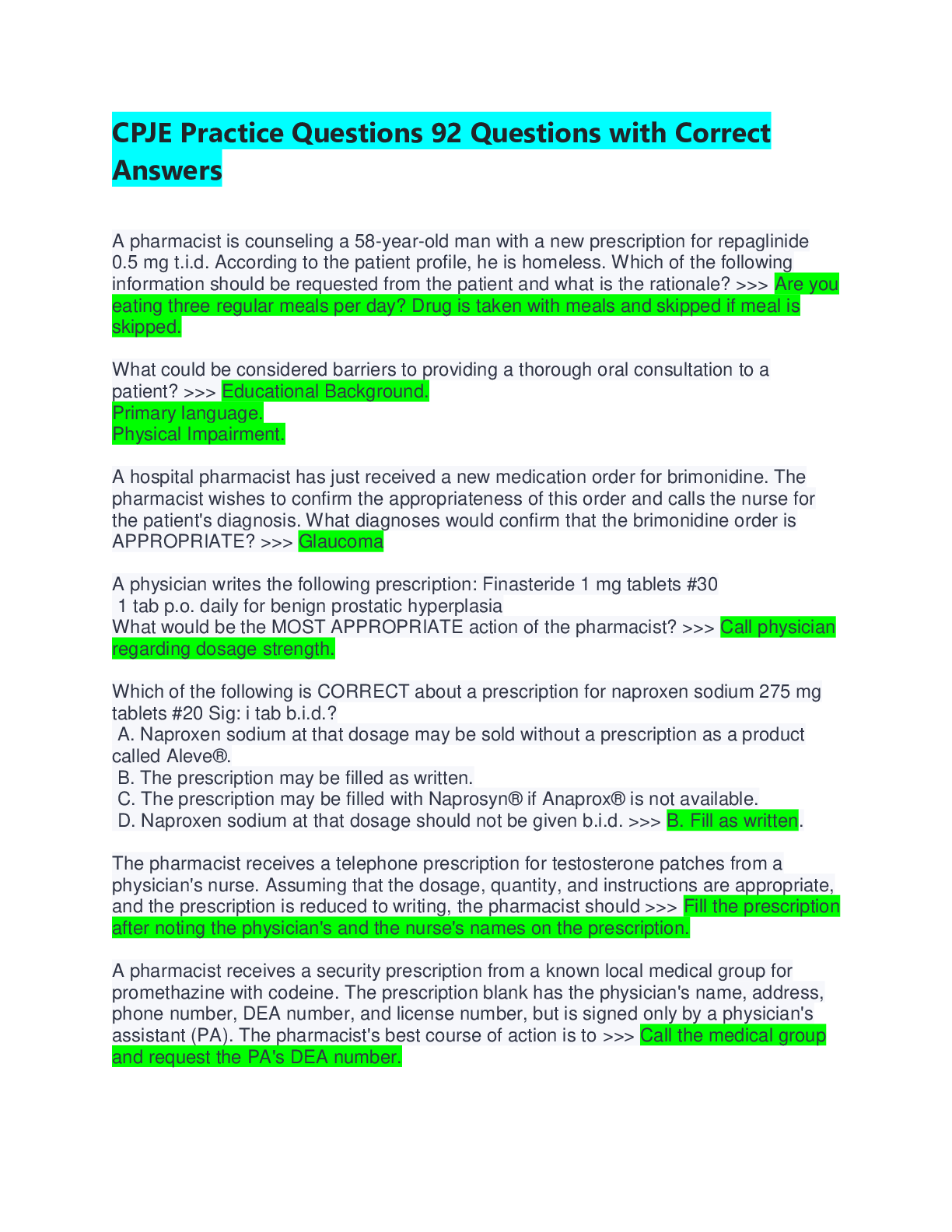
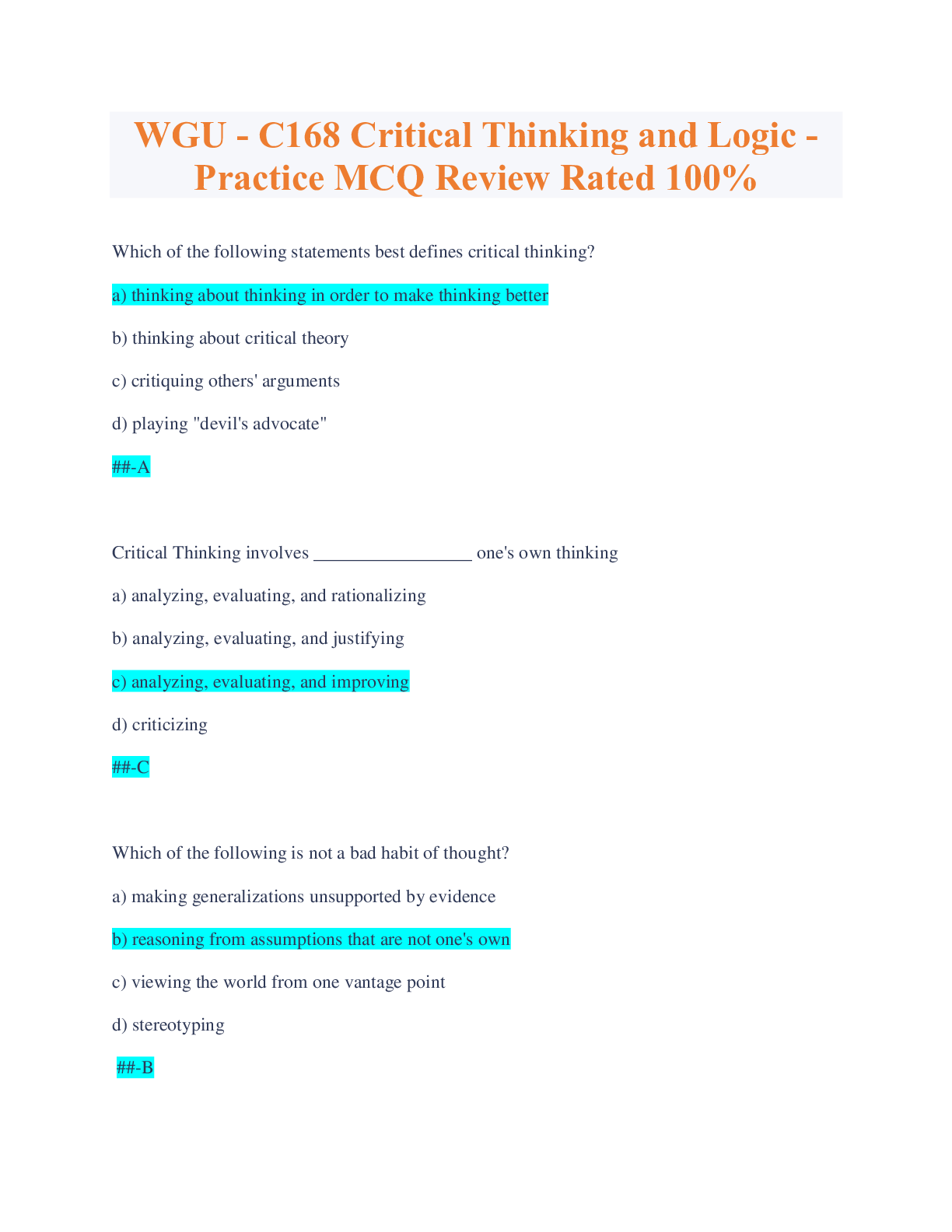
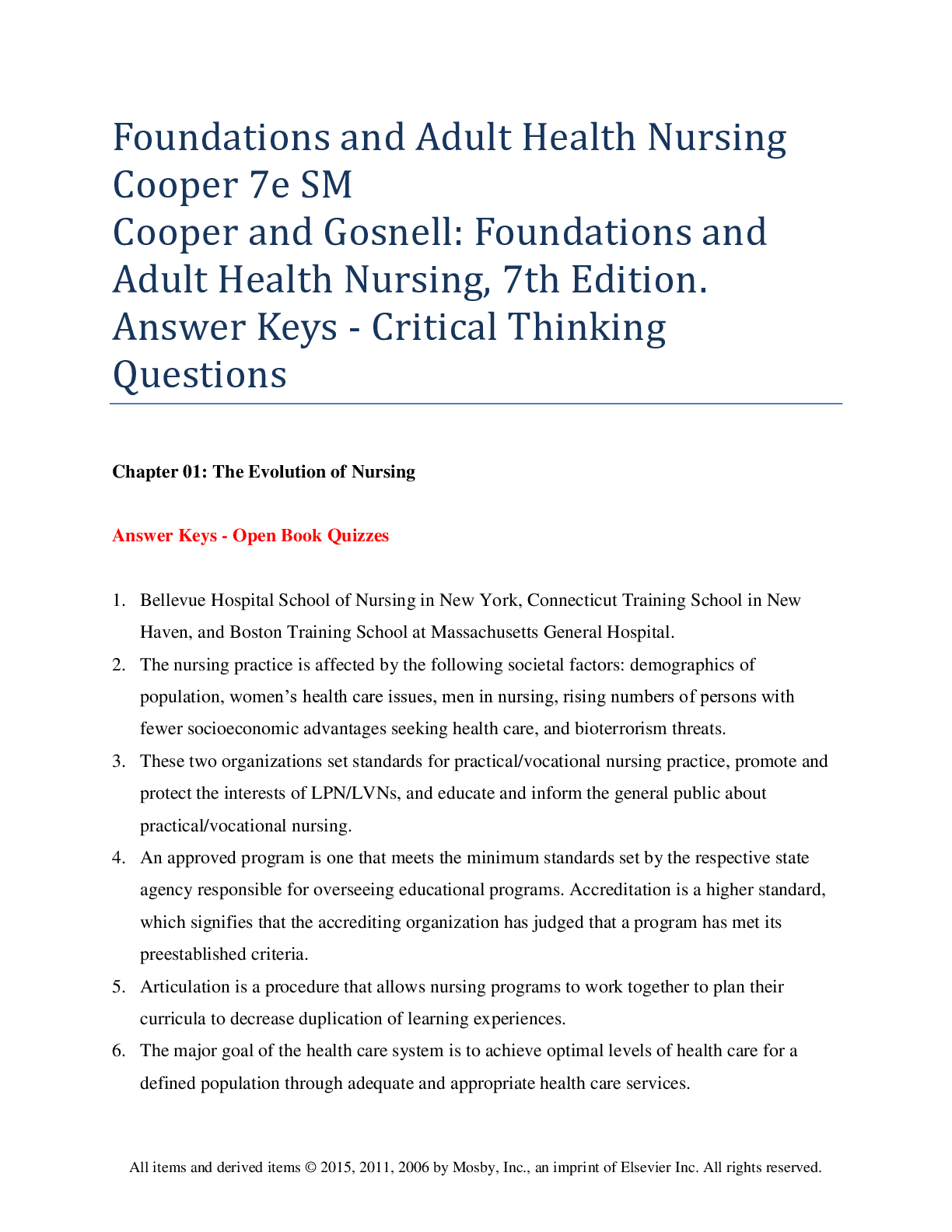
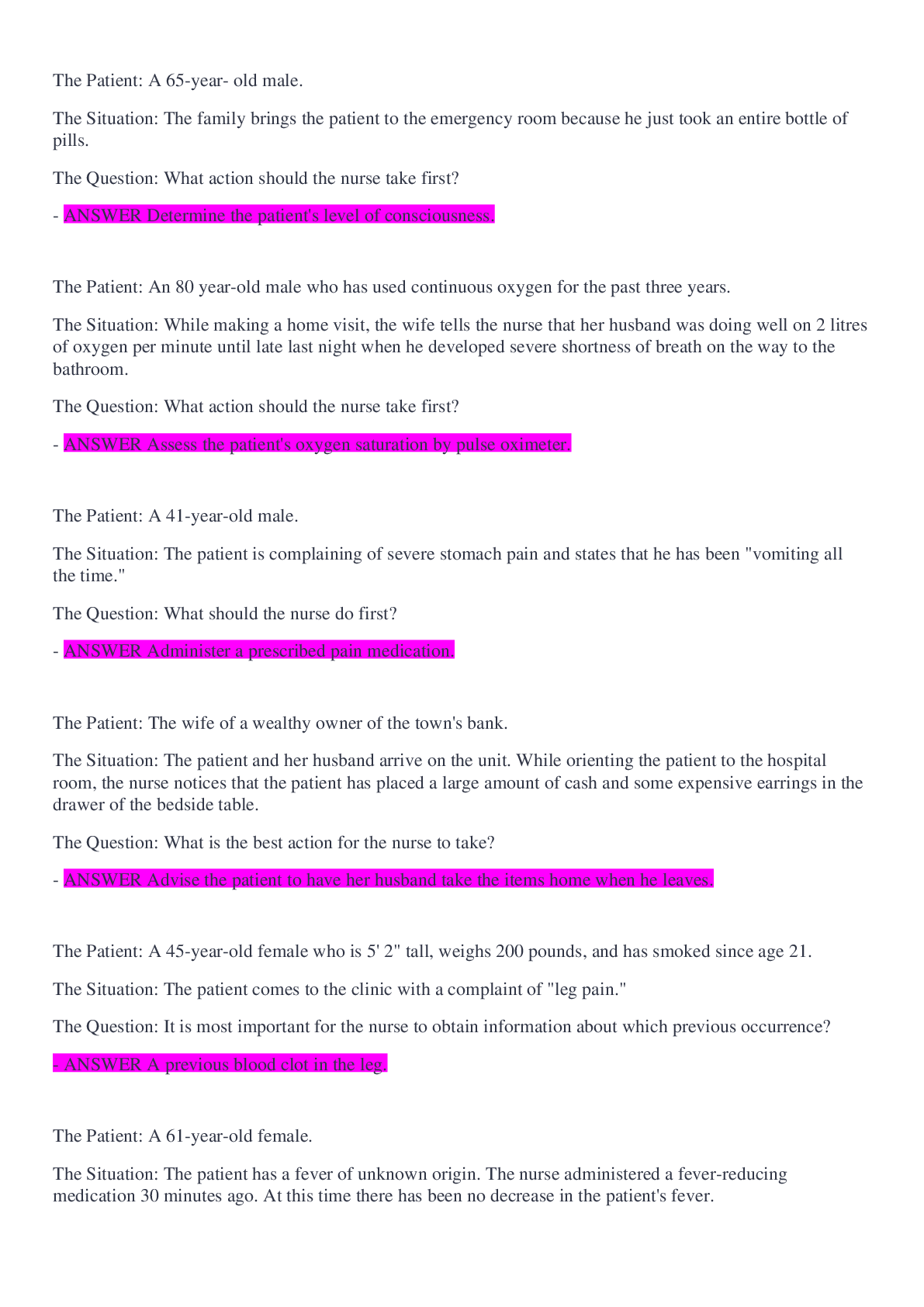
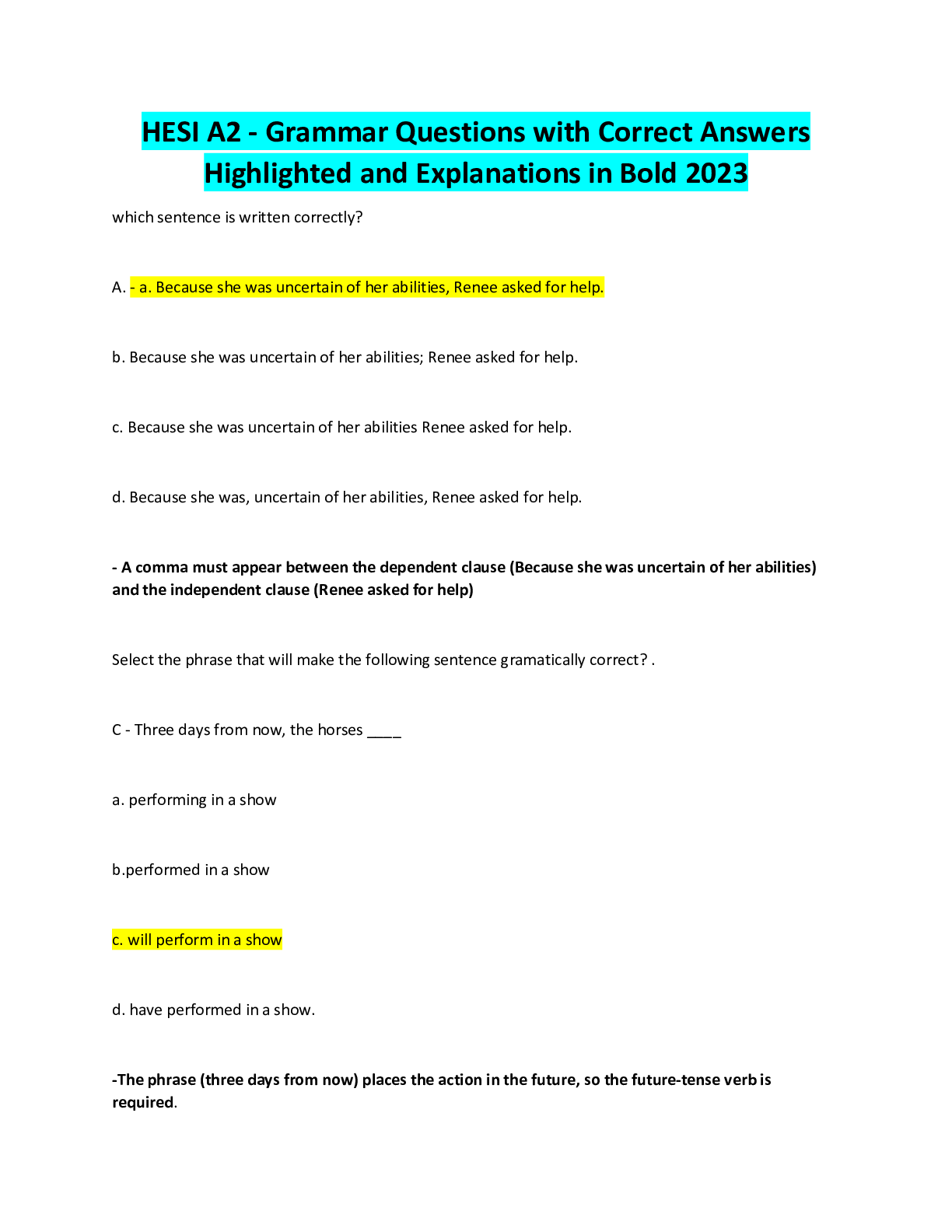
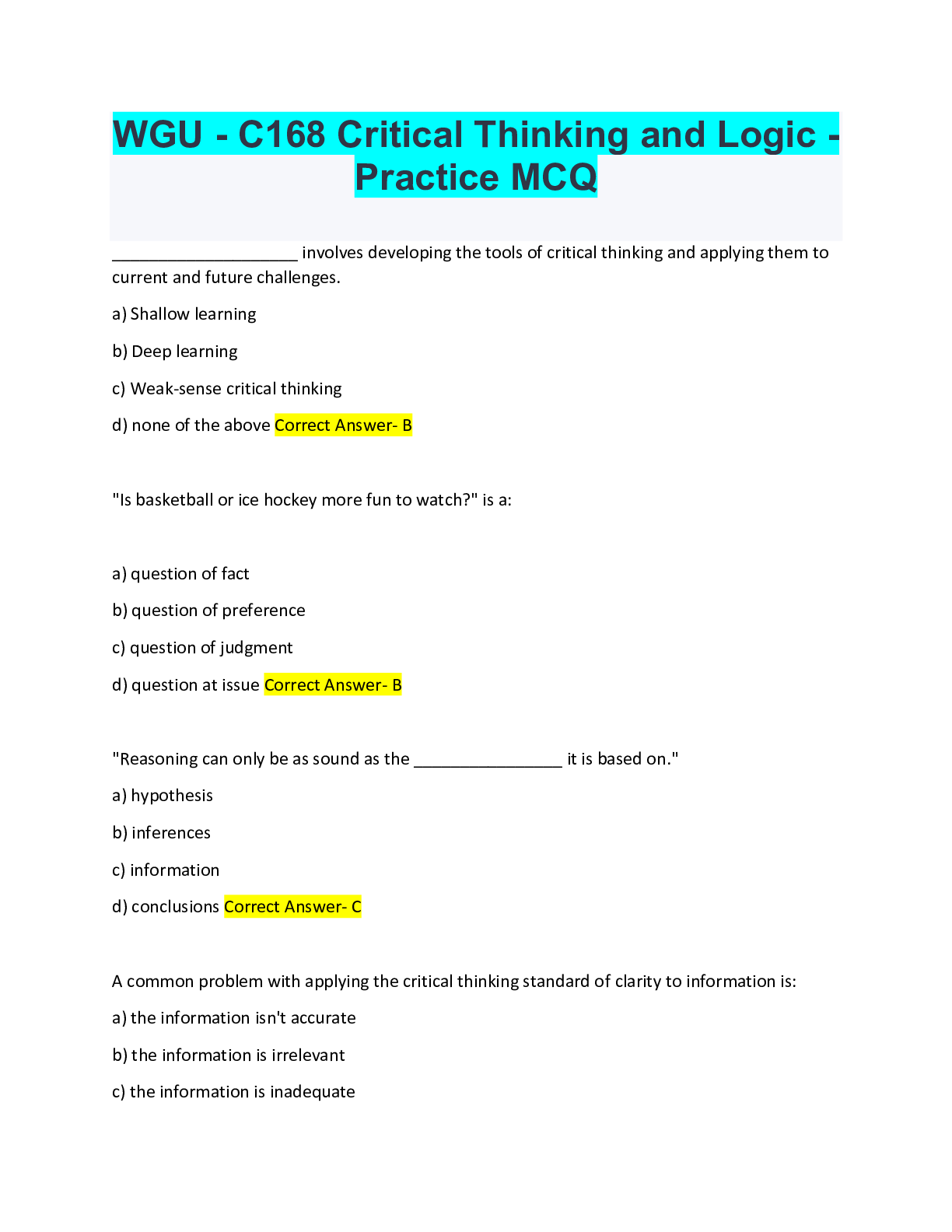
.png)
.png)
.png)

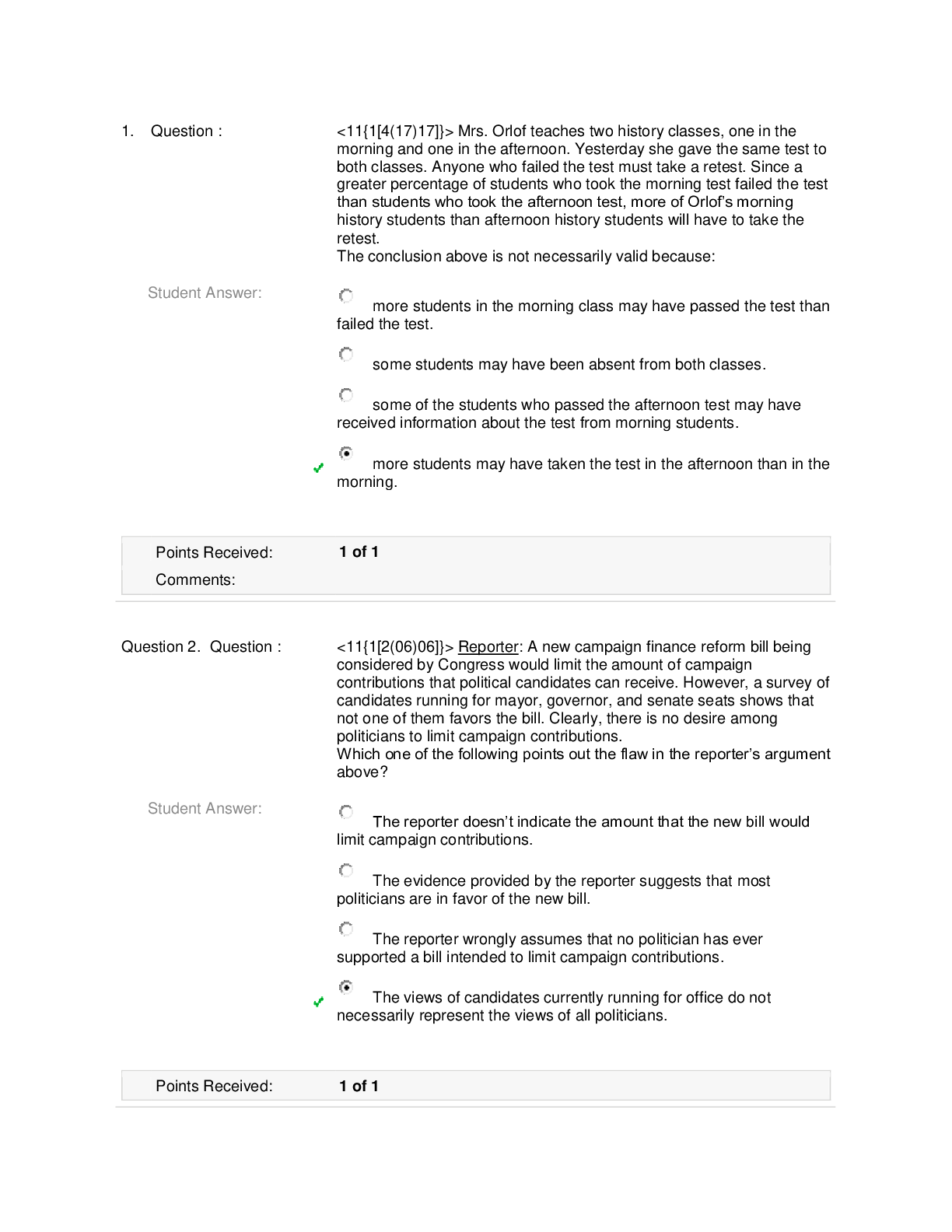
.png)

.png)
